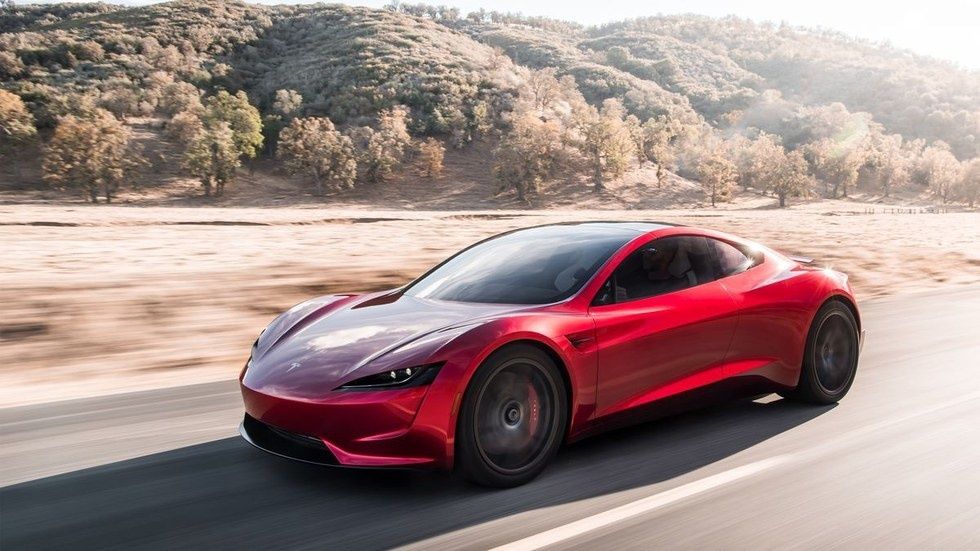Is Elon Musk really fitting rocket thrusters to the Tesla Roadster?
Bombastic billionaire Elon Musk has claimed an optional extra for the upcoming Tesla Roadster will see around 10 "small rocket thrusters" fitted to the outside of the car.
Known for his outlandish claims about the future of transportation, Musk tweeted on June 9 about the rockets, which he said could be offered as a 'SpaceX option package', named after his rocket company.
In a series of follow-up tweets on June 10, Musk explained in more detail how the "ultra high pressure air" rockets could work and that, yes, he is being serious.
Musk originally said: "SpaceX option package for new Tesla Roadster will include ~10 small rocket thrusters arranged seamlessly around car. These rocket engines dramatically improve acceleration, top speed, braking & cornering. Maybe they will even allow a Tesla to fly…" We feel confident about the last line being a joke.
SpaceX option package for new Tesla Roadster will include ~10 small rocket thrusters arranged seamlessly around car. These rocket engines dramatically improve acceleration, top speed, braking & cornering. Maybe they will even allow a Tesla to fly …
— Elon Musk (@elonmusk) June 9, 2018
There are, of course, a lot of questions for Musk and Tesla to answer here. Will the air be fired upwards, pushing the car into the ground to improve grip, complementing traditional downforce? Will the rockets act as a new form of traction and stability control, countering wayward driver input? Will such a system be legal for a street car? And if so, will Tesla be able to homologate such a system for use worldwide, or at least in its key markets? Is this all smoke and mirrors to distract from the (admittedly improving) Model 3 production issues?
The following day, Musk added: " Next gen Roadster will be absolutely out of this world. For those who love to drive, there is no finer car in history and we don't think there will be another."
Despite the apparent certainty of his tweets, Musk has previously made claims about future Teslas which have fallen short. In April 2016, he described the steering controls of the Model 3 by saying: "Wait until you see the real steering control and system for the 3. It feels like a spaceship." This prompted speculation of a reimagined steering wheel and head-up display, but no such system arrived.
Note, gas contained would be ultra high pressure air in a SpaceX rocket COPV bottle. The air exiting the thrusters would immediately be replenished whenever vehicle pack power draw allowed operation of the air pump, which is most of the time.
— Elon Musk (@elonmusk) June 10, 2018
Explaining the Roadster's rockets in more detail, Musk added: "Note, gas contained would be ultra high pressure air in a SpaceX rocket COPV [composite overwrapped pressure vessel] bottle. The air exiting the thrusters would immediately be replenished whenever vehicle pack power draw allowed operation of the air pump, which is most of the time."
Twitter user Ryan Knapp asks: "Wait. You were serious?" to which Musk replies: "Yes".
The Roadster, already claimed to have a 600-mile range, 250mph+ top speed and a 0-60mph time of 1.9 seconds, costs from $200,000 and is due to go on sale in 2020. That said, Tesla is notoriously optimistic with the launch schedules of new cars, so this date should be taken with a pinch of salt for now.
